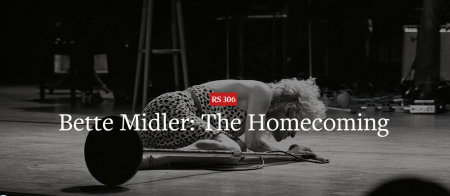Mister D: Bette did record one of Melissa’s songs, entitled, “Easy” but was never released on an album.
Joplin Globe
Veteran Singer Melissa Manchester Finally Breaks Away to Do Solos
August 26, 1973
NEW YORK (AP) – Melissa Manchester’s singing has been heard on several hundred TV commercials, anonymously buried in a chorus of jingle singers. But she started doing a solo act this year.
It doesn’t involve singing the praises of hair spray, chewing gum and all that, either. She’s
singing her own songs, getting a few TV shots, working a few clubs and promoting her first album.
She’s hoping that eventually it’ll all fall into place and put her in the ranks of singers like
Barbra Streisand, one of her favorites, or Bette Midler, in whose backup group she sang last year.
“I started in commercials, but I’ve always been singing,” said Miss Manchester, whose father is a bassoonist with the New York Metropolitan Opera company. “Our house always has been music.”
Miss. Manchester, who laughs often and speaks in a low, husky voice, is all of 22. She was born and raised in Fun City and got into the jinglesinging business here at 15. Her first jingle?
“Ah, yes, it was for Coppertone,” she said. “I also was the Morton Salt girl.”
Her youth was a bit different from those of most kids. She went to school, but her real classroom was the recording studio, where she worked with such people as jazz trombonist J.J. Johnson and drummer Bob Rosengarden, now the bandleader on ABC’s “Dick Cavett Show.”
After graduation from New York’s High School of Performing Arts, she continued doing jingles, as well as demonstration records for songwriters and briefly studied acting at New York University.
“It was there that I really learned now much I disliked acting,” she said. “I left after a year.”
She went from there to songwriting for a large New York publishing house, while still singing jingles for a living, and squeezed in time for an eight week songwriting course at NYU.
The instructor was Paul Simon, who with colleague Art Garfunkel had a pretty big hit going then – something called “Bridge Over Troubled Water.”
Miss Manchester, whose vocal style has been described as lying somewhere between that of Carole King and Aretha Franklin, was singing at a small West Side club one night when Bette Midler came in.
“We got into talking about vocal coaches,” she said. “I knew what she had done as a singer and I told her how much I admired her.
“At the time, she was preparing for a concert appearance at Carnegie Hall, so I said, ‘I understand you’re singing at Carnegie Hall.’ She says yes.
“I said, ‘Ahem, harrumph, so when am I singing with you?’ She says, ‘you want to sing with me?’ I said, ‘No, I’d like to sing instead of you, but until that time comes I’ll sing with you.
It led to the formation of the Harlettes, a three-women singing group that backed up Miss Midler on her concert appearances starting in June last year.
Miss Manchester left the group on New Year‘s Day to strike off on her own, continuing, as she had in her spare time, the long round of knocking on record company doors with tapes of her own songs.
The tapes all had been recorded in professional studios, with full orchestras, She said she paid for it all, with her earnings from jingles.
An independent record producer, Hank Medrus, liked her stuff and steered her toward Bell Records. A contract was signed and she finally made her first album. Now she’s working on a second.
And in the interim, she’s appeared on two Mike Douglas shows and has a scheduled appearance coming up on NBC’s ” M i d n i g h t Special” music show.
How’d she land that show? “Well, I was appearing at the Troubador,” she said, referring to the Los Angeles club many young performers consider the home of the big break. “The talent coordinator from ‘Midnight Special” saw me and she liked me.
“It’s incredible,” Miss Manchester quietly mused. “You could work your butt off for years and years around the country and you’ll never get to as many people in four years as you will in one five-minute TV shot.”
She’s been lucky and she’ll readily admit it. But she also says she wants to take her time building her new career, to have time to grow musically and cope with the pressures of whatever success comes her way.
Would she eventually like to have her own show, something akin to that of Helen Reddy?
“No,” she said without a moment’s hesitation. “I just want to grow. I have nothing to do for the next 40 years. Just want to keep singing.”








